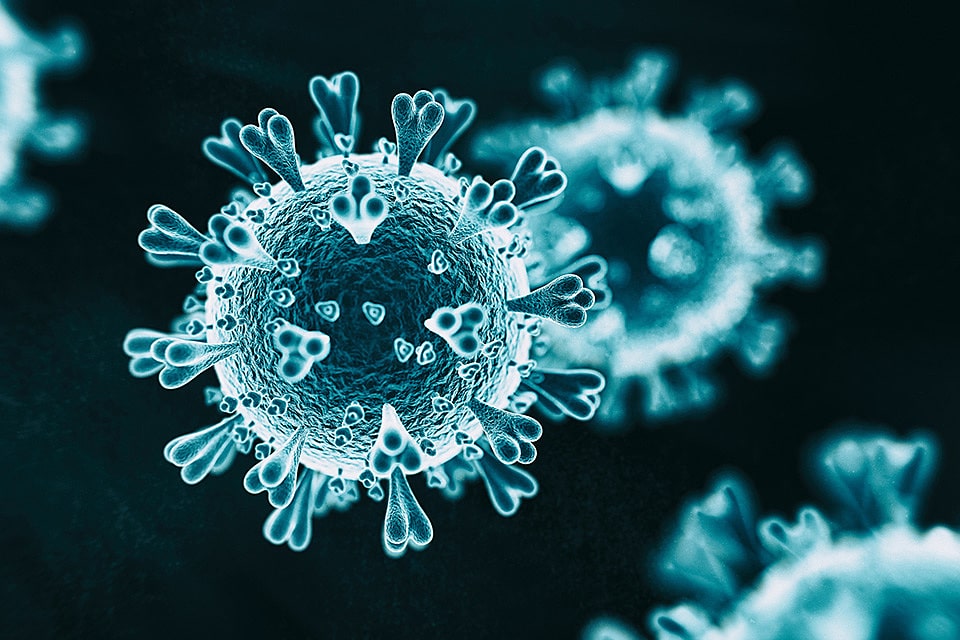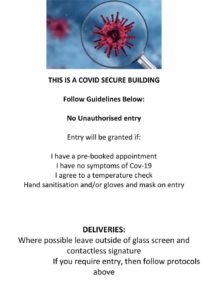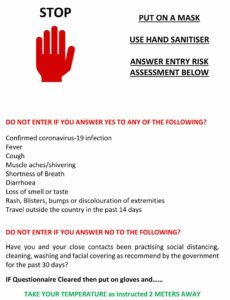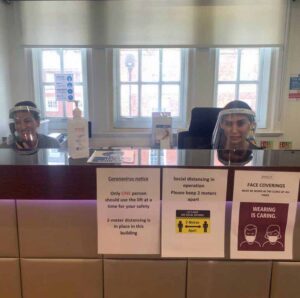
Guidelines for Patients Seeking Hair Transplant Surgery and Other Hair Procedures During Covid-19
15th May 2020

In the interest of patients undergoing hair transplant and other hair restorative procedures, the International Society of Hair Restoration Surgery (ISHRS) has issued the following recommendations to help protect patients from getting infected with COVID-19 and inform patients of possible modifications that should be expected in their physicians/surgeons’ practices. Our doctors at Farjo Hair Institute were members of a small task force selected by the ISHRS President to debate and approve these guidelines.
Where applicable, local governmental instructions regarding the carrying out of hair transplant practice may supersede the recommendations in this document.
- Know your health status: Keep informed about signs of infection, how to avoid infection, what to do if you feel you have become infected, and how to protect others.
- Follow personal protection guidelines: You should strictly follow all governmental guidelines for stay at home, social distancing, hand sanitizing, and use of masks/facial coverings.
- Look for a clinic that is a “COVID-Protected Facility”
A COVID-protected facility…
-
Routinely asks patients for a relevant COVID-19 history of their own health and their contacts. It is important that patients provide accurate information.
-
Follows social distancing guidelines by limiting contact of patients with one another whether in consultation or in a procedure and will arrange waiting room seating accordingly.
-
Uses suitable equipment/PPE (Personal Protective Equipment) as recommended by the Center for Disease Control (CDC) USA and NHS UK.
-
Routinely uses relevant health histories and daily temperature monitoring of all clinic staff and patients as part of their strategy to prevent contagion. Additionally, and where available, follows all government guidelines on use of testing to monitor staff.
-
Checks to make sure that if a staff member is sneezing or coughing that this is not related to Covid-19
-
In addition to using proper PPE, it uses appropriate cleansing, disinfecting and sterilization procedures throughout the office/clinic. Also, uses proper waste disposal methods for any materials that could be contaminated.
-
Advises patients of hand washing protocols in the office/clinic and how to change gloves, gown and masks.
-
Assures the public that the staff have received additional training with regards to proper COVID-19 infection control methods
-
And perhaps most importantly, the surgeon you have chosen is the one performing the surgical steps of your procedure, rather than delegating it to unlicensed technicians.
Who is ‘clinically extremely vulnerable’?
Expert doctors in England have identified specific medical conditions that, based on what we know about the virus so far, place someone at greatest risk of severe illness from COVID-19. Information below correct as of May 6, 2020.
Clinically extremely vulnerable people may include the following people. Disease severity, history or treatment levels will also affect who is in the group.
- Solid organ transplant recipients.
- People with specific cancers:
- people with cancer who are undergoing active chemotherapy
- people with lung cancer who are undergoing radical radiotherapy
- people with cancers of the blood or bone marrow such as leukaemia, lymphoma or myeloma who are at any stage of treatment
- people having immunotherapy or other continuing antibody treatments for cancer
- people having other targeted cancer treatments which can affect the immune system, such as protein kinase inhibitors or PARP inhibitors
- people who have had bone marrow or stem cell transplants in the last 6 months, or who are still taking immunosuppression drugs
- People with severe respiratory conditions including all cystic fibrosis, severe asthma and severe chronic obstructive pulmonary (COPD).
- People with rare diseases and inborn errors of metabolism that significantly increase the risk of infections (such as Severe combined immunodeficiency (SCID), homozygous sickle cell).
- People on immunosuppression therapies sufficient to significantly increase risk of infection.
- Women who are pregnant with significant heart disease, congenital or acquired.
People who fall in this group should have been contacted to tell them they are clinically extremely vulnerable and should be Shielding. If you are in close contact with someone in this group, follow government guidance.
A second vulnerable group of people at moderate risk from coronavirus include people who:
- are 70 or older
- are pregnant
- have a lung condition that’s not severe (such as asthma, COPD, emphysema or bronchitis)
- have heart disease (such as heart failure)
- have diabetes
- have chronic kidney disease
- have liver disease (such as hepatitis)
- have a condition affecting the brain or nerves (such as Parkinson’s disease, motor neurone disease, multiple sclerosis or cerebral palsy)
- have a condition that means they have a high risk of getting infections
- are taking medicine that can affect the immune system (such as low doses of steroids: The British Association of Dermatologists consider this to be 20mg per day for 4 weeks or more)
- are very obese (a BMI of 40 or above)
Social distancing measures are recommended but are not legal requirements.
Other categories:
Black, Asian & Minority Ethnic (BAME): suggestions that this group are at higher risk have not been clarified
Males especially over 50: suggestions that this group are at higher risk have not been clarified
Currently there is no clear evidence that hypertension as such is associated with an increased risk of infection by COVID-19. Therefore, patients with hypertension should apply the same precautions as people of the same age category and with the same profile of other medical conditions.
Resources:
https://www.ecdc.europa.eu/en/cases-2019-ncov-eueea
If you’re still concerned, you should discuss your concerns with your GP or hospital specialist.







